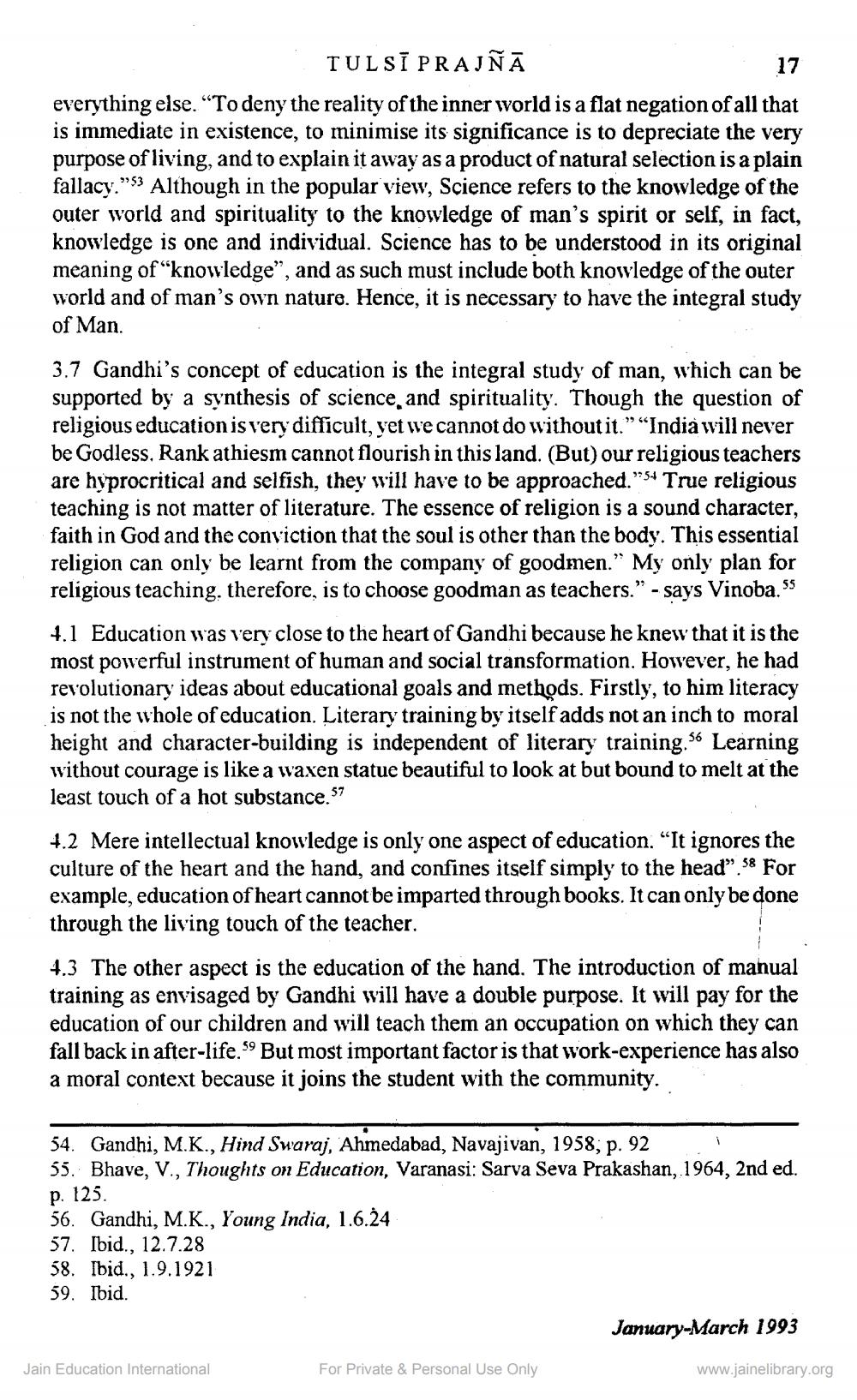________________
TULSĪPRAJNA
17
everything else. "To deny the reality of the inner world is a flat negation of all that is immediate in existence, to minimise its significance is to depreciate the very purpose of living, and to explain it away as a product of natural selection is a plain fallacy."" Although in the popular view, Science refers to the knowledge of the outer world and spirituality to the knowledge of man's spirit or self, in fact, knowledge is one and individual. Science has to be understood in its original meaning of "knowledge", and as such must include both knowledge of the outer world and of man's own nature. Hence, it is necessary to have the integral study of Man.
3.7 Gandhi's concept of education is the integral study of man, which can be supported by a synthesis of science and spirituality. Though the question of religious education is very difficult, yet we cannot do without it." "India will never be Godless. Rank athiesm cannot flourish in this land. (But) our religious teachers are hyprocritical and selfish, they will have to be approached."" True religious teaching is not matter of literature. The essence of religion is a sound character, faith in God and the conviction that the soul is other than the body. This essential religion can only be learnt from the company of goodmen." My only plan for religious teaching, therefore, is to choose goodman as teachers." - says Vinoba. 55
4.1 Education was very close to the heart of Gandhi because he knew that it is the most powerful instrument of human and social transformation. However, he had revolutionary ideas about educational goals and methods. Firstly, to him literacy is not the whole of education. Literary training by itself adds not an inch to moral height and character-building is independent of literary training." Learning without courage is like a waxen statue beautiful to look at but bound to melt at the least touch of a hot substance.57
56
4.2 Mere intellectual knowledge is only one aspect of education. "It ignores the culture of the heart and the hand, and confines itself simply to the head".58 For example, education of heart cannot be imparted through books. It can only be done through the living touch of the teacher.
4.3 The other aspect is the education of the hand. The introduction of manual training as envisaged by Gandhi will have a double purpose. It will pay for the education of our children and will teach them an occupation on which they can fall back in after-life. 59 But most important factor is that work-experience has also a moral context because it joins the student with the community.
54. Gandhi, M.K., Hind Swaraj, Ahmedabad, Navajivan, 1958, p. 92
55. Bhave, V., Thoughts on Education, Varanasi: Sarva Seva Prakashan, 1964, 2nd ed. p. 125.
56. Gandhi, M.K., Young India, 1.6.24
57. Ibid., 12.7.28
58. Ibid., 1.9.1921 59. Ibid.
Jain Education International
For Private & Personal Use Only
January-March 1993
www.jainelibrary.org




